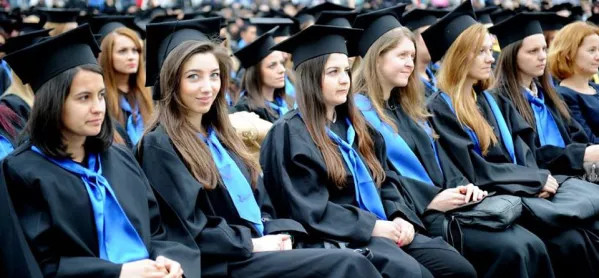Let pupils apply after A-level results, universities say

The vast majority of university tutors think that the higher-education admissions system should be dramatically overhauled, so that pupils apply only after they have received their A-level results, a new survey has found.
Many tutors said that universities were more concerned about bringing in tuition fees than they were about recruiting high-calibre candidates.
More than 2,100 university and further-education tutors were surveyed by the University and College Union (UCU). Many of them work as admissions tutors or are involved in admissions for their institutions.
The survey found that almost half of the respondents believed that sixth-formers had no understanding of how their university applications would be assessed.
One of the tutors commented: “It’s not just at my institution that students don’t understand how their application will be assessed - this is true across the country.”
And seven out of 10 said that sixth-formers should be allowed to apply for courses after they had received their A-level results.
One respondent said: “University admissions is an act of crystal-ball gazing. Anything that can reduce the crystal-ball gazing would be beneficial. Post-results admissions is one way of doing that.”
This could be done in a number of ways, UCU’s report says. Almost two-thirds of tutors said that they would welcome the adjustment of the exam timetable, so that pupils sat A-levels early and then applied to university. And more than half said that they would welcome a late-starting academic year, which enabled pupils to receive their results in August, and then apply for a university place.
At the moment, the admissions process relies on a combination of personal statement, A-level predictions, GCSE grades and, occasionally, an interview.
Almost two-fifths of the tutors said that the personal statement was not a useful tool for distinguishing between applicants. “The personal statement retains some value for assessing general language competence, but far less so for demonstrating competence,” one respondent said.
The tutors looked more favourably on admissions interviews. However, these were only used patchily, and rarely as a way of distinguishing between applicants.
One tutor said: “Interviews are not used to select students, but to sell the university via personal attention and academic charm.”
Instead, a large number of universities simply give unconditional offers to students who had been predicted appropriate grades for the course. This met with considerable disapproval among tutors.
“Unconditional offers are being made on the basis of little more than GCSE grades and teachers’ predictions,” one tutor said. “This is grossly unfair…discriminating against applicants with non-traditional backgrounds.”
Another said: “Making unconditional offers to students with predicted grades devalues A-levels - the practice should be banned.”
In many cases, the unconditional offer is given only if pupils agree to make that university their first choice.
“The…unconditional offer scheme is a disgrace,” one tutor said. “This is a marketing scam designed to attract applicants, and has nothing to do with academic merit…It is a betrayal of school teachers, who are trying to encourage their students to engage with school work.”
Sally Hunt, general secretary of the University and College Union, believes that this is a direct consequence of higher tuition fees. “The numbers of unconditional offers are increasing, as universities seek to secure student numbers,” she said.
“Allowing students to apply after they get their results would remove the pressure on schools to overestimate students’ marks.”
The union said an overhaul of the system would also address the problem of inaccurate predicted grades.
Recent exam board research highlighted that only half of final A-level results matched estimates made by teachers earlier in the academic year, with almost one in 10 forecasts out by more than one grade.
Meanwhile, the proportion of students who achieve ABB grades after being predicted to do so is falling year on year. Just one in five students (21 per cent) predicted to achieve ABB or better in 2014 actually did, compared with almost a third (32.2 per cent ) in 2010.
Keep reading for just £1 per month
You've reached your limit of free articles this month. Subscribe for £1 per month for three months and get:
- Unlimited access to all Tes magazine content
- Exclusive subscriber-only stories
- Award-winning email newsletters



